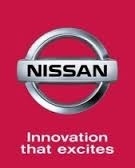
Lesley Batchelor
Institute of Export sets new Customs Diploma into gear, driven by demand from Nissan UK and other businesses, By Lesley Batchelor, Director General of the Institute of Export and International Trade
On a cold February Friday I drove up to meet Steve Sandell of the Nissan Group at the company’s UK headquarters in Sunderland, to discuss a training need that he wanted to cover. Little did either of us know at that time how this project would grow into a full qualification at Diploma level.
“I looked everywhere to find a relevant qualification that would help our staff to understand all the implications of Customs, ” Steven Sandell explains. “I had a very clear view of what we wanted and was surprised that it wasn’t available anywhere in the UK. There is a lot of good training throughout the UK and Europe, courses which cover many of the rules, processes, procedures and legislation with regards to Customs/import/export… however, it was an all encompassing, formal qualification which is lacking in the UK.’
With the help and dedication of a great team including Institute of Export council member Sandra Strong and a steering group consisting of Nissan, Sony, Amber Road, Adidas, BAE, BIS Export Controls, Ryan Consulting, Tesco, Grosvenor EU, Mike Hodge Associates and Barbara Scott (chair of The Customs Practitioners Group), the qualification was made ready for its launch onSeptember 12 2013.
This, the Institute’s latest qualification, is formally known as the Diploma in World Customs Compliance and Regulations
So why was it needed? It was quite easy to find examples where a lack of knowledge had caused huge problems and ended in companies facing fines they were not expecting.
Examples,
- A university had a bill for £125, 000 for not completing a simplified Inward Processing Relief (IPR) bill of discharge when goods were re-exported.
- Another company used a duty relief scheme for imports by charities but did not fulfil the conditions of the customs procedure, which resulted in a debt of over £500, 000.
- A supplier had their goods detained on arrival into their customer’s country because the invoice showed a tariff number that didn’t exist in the customer country’s tariff. The customers received a storage bill of $2, 000 and a duty penalty of $5, 000 which they tried to reclaim from the supplier
- A supplier to the airline industry imported goods under their end use approval but the goods were imported to incorrect tariff codes and the goods did not qualify for end use – retrospective demand for £60, 000.
- No approval for removal of waste materials, which were left after goods, had been imported under IPR – the cost to one chemical company was £220, 000.
- Company exporting ‘standard’ computer servers had their goods detained by the UK Border Agency and they were subsequently fined because the level of encryption they contained made them export licensable
- Company used a general tariff classification code of “parts of …” their main machines. All imports had to be reclassified as this was incorrect – additional duty demand of £1.2m.
- A shipment was detained at import because the exporter had not provided the correct certificate of origin or the certificate of conformity in line with the countries’ requirements for that commodity.
Further examples include: misdeclaration of origin; wrong currency declared; under-valuation, and that hardy perennial of wrong commodity codes being used.
Worse still, we realised that some companies automatically built in a contingency fund for errors! We realised that as skilled members of staff were retiring. the knowledge was being lost. To rectify this, the new qualification has been devised using the great expertise of Sandra Strong, world recognised industry expert and Fellow of the Institute of Export, and the steering group to produce a new and truly useful Diploma (level 5) qualification.
The qualification follows our Blended Learning Technique – online materials supported by webinars, power-point and tutor support, which has proved so successful for us these last five years.. It is priced at the same rate as the other qualifications and we expect it to take the same time as the existing Diploma.
With the need for keen pricing in all aspects of logistics, and for skill with regard to buying from overseas, the question of compliance is impacting every company’s bottom line. This new qualification is a vital link in ensuring that our top companies stay in the battle to keep Britain exporting and, most importantly, doing so at a profit.
For more details about the qualification and how to get involved, contact Kevin Shakespeare, kevin@export.org.uk





